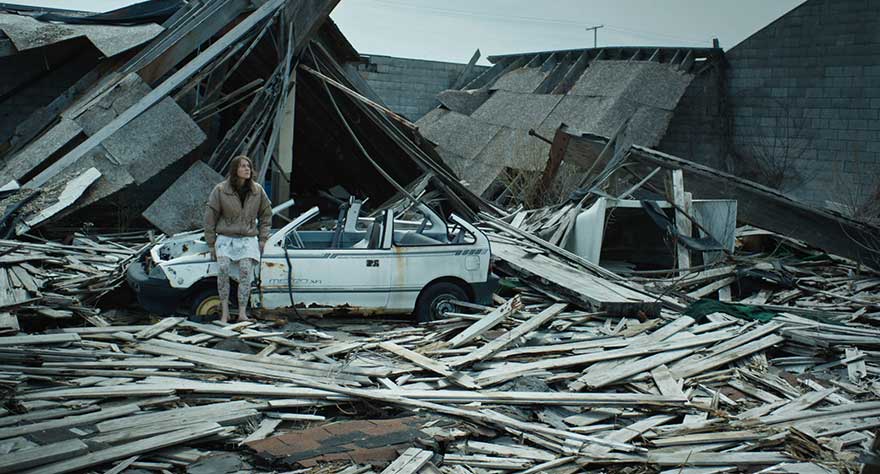Embers (Slamdance Review)

What would happen to humanity if everyone lost their ability to retain memories? That’s one of the questions Claire Carré explores with her debut feature Embers, which drops viewers into a world 10 years after a disease infects everyone with short-term and long-term memory loss. Carré splits her film up into five narrative strands, each one examining how an aspect intrinsic to our existence changes within her own dystopian vision; a couple (Jason Ritter & Iva Gocheva) wake up every day trying to remember how they know each other; a former intellectual (Tucker Smallwood) tries different ways to learn again so he can find a cure; a boy (Silvan Friedman) with no parents wanders around trying to survive on his own; a young man (Karl Glusman, credited as Chaos) filled with rage attacks everyone he encounters; and the young girl Miranda (Greta Fernandez) lives in an underground bunker with her father (Roberto Cots), safe from the disease but cut off from the world.
On the surface, Carré’s film looks like standard post-apocalyptic fare, but its tone is anything but. Shooting in Indiana, New York and Poland, Embers casts its urban decay in a bland, grey hue that should bring to mind Cormac McCarthy’s The Road, except Carré doesn’t provide her film with the same bleakness and nihilism. With no one connected to their past, the strong emotions connected to memories don’t exist anymore, leaving characters to constantly live in the moment in a somewhat peaceful state. The only exception to this is Chaos, whose violent acts take on a new meaning given they’re instinctual and without consequence. The somewhat tranquil mood amidst a dying world makes for a fascinating juxtaposition, allowing Carré the ability to weave in emotional and philosophical questions about identity and the human condition.
With a short runtime and several disconnected storylines, Embers only disappoints with its inability to coalesce on a thematic level (most segments just end abruptly). The only exception is Miranda’s storyline, as her near-decade of isolation makes her consider leaving the bunker to go live in the real world. Her father begs her not to go, telling her that once she’s infected she’ll lose everything that makes her who she is. For Miranda, it’s a complicated situation that directly addresses Carré’s question at the heart of the film, over whether or not memory is the source of our own individuality.
